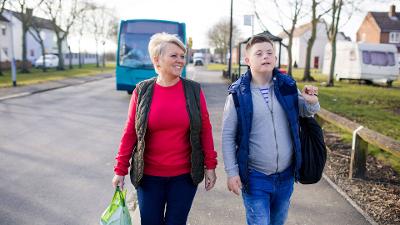Who can foster
Almost anyone over 21 can foster. This is regardless of relationship status, whether you have kids or not, or whether your own your home or rent.

There is no upper age limit. Most pets are very welcome. You do not need specific qualifications as in-depth training is provided. A driving licence is handy but not essential. You must be able to speak and write in English and have good communication skills.
Fostering can fit around your family and career - lots of people carry on working. It all depends on the age of the children you want to foster and the support you might have available.
Things to consider:
- Do you have a spare bedroom? (not always needed for fostering babies)
- Are you available a minimum of one weekend a month? (for overnight or sleepover care)
- Could you care for a school-age child if they're ill and off school?
What age children could you foster

Our social workers help you work out what age children you are best placed to foster. This happens during the assessment and approval process.
Foster carers can look after babies, toddlers, school-aged children, or teenagers.
They might look after:
- Children only at weekends or during school holidays
- Multiple children, including family groups
- Children with special needs or disabilities

Hear from our foster carers
Read about our foster carers, their experiences and the support they have received from Norfolk Fostering Service.
Fostering case studies (Go to Hear from our foster carers)





